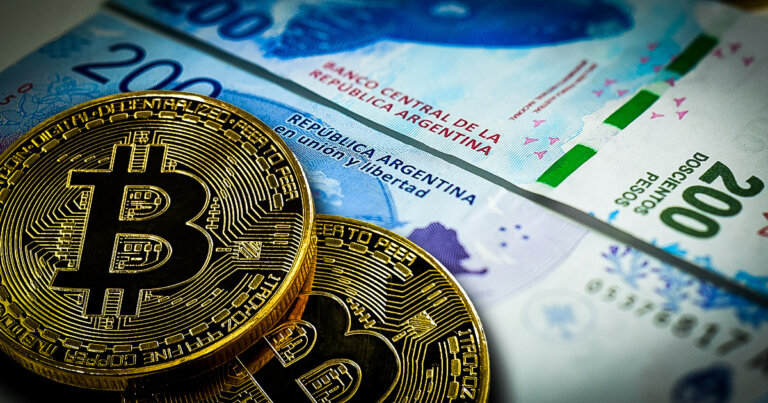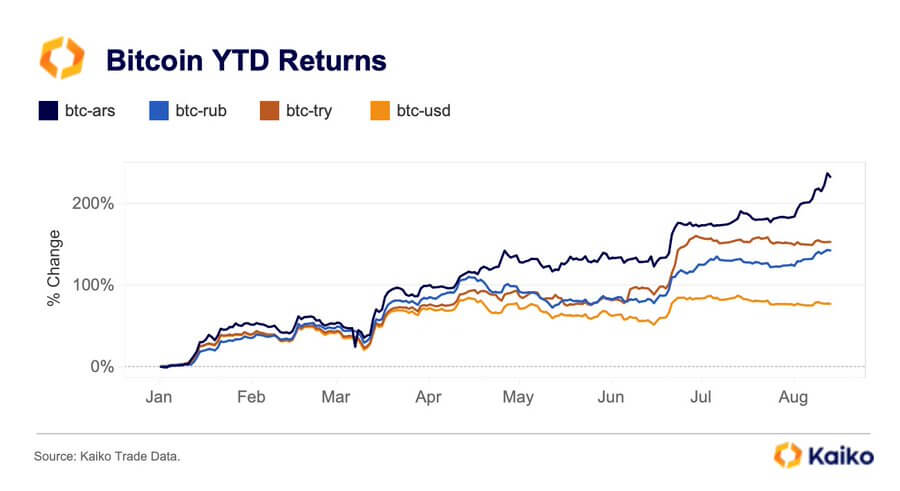 Pro-BTC candidate triumph sees Bitcoin reach historic high against Argentinian peso
Pro-BTC candidate triumph sees Bitcoin reach historic high against Argentinian peso Pro-BTC candidate triumph sees Bitcoin reach historic high against Argentinian peso
Bitcoin's value soared to an all-time high of more than 8.4 million Argentina pesos following Javier Milei's shock victory.

Cover art/illustration via CryptoSlate. Image includes combined content which may include AI-generated content.
Bitcoin’s (BTC) price soared to an all-time high against the Argentinian Peso after a pro-BTC candidate, Javier Milei, won the country’s primary presidential race.
Pro-Bitcoin candidate emerges
Earlier today, Milei, a staunch critic of central banks, recorded an unexpected primary win in the presidential elections.
The election results show that Milei polled 30.1% of the votes, ahead of the other candidates from Together for Change and the ruling Peronist bloc, who got 28.3% and 27.2% of the votes, respectively.
Milei’s unexpected triumph is seen as a rejection of Argentina’s entrenched political establishment. The pro-BTC candidate became anti-establishment after proposing the dollarization of the economy and called for the abolishment of the central bank due to the country’s economic woes.
Poverty levels in Argentina are at a record high, and its inflation rate is the world’s third-highest, according to The Economist.
Meanwhile, with no presidential aspirants reaching the constitutionally required 45% threshold, the nation is poised for a general election in October. Subsequently, a conclusive runoff will be held in November if a definitive winner remains undetermined.
BTC soar to ATH against ARS
Data from the blockchain analytical firm Kaiko showed that BTC’s value soared to an all-time high of more than 8.4 million Argentina pesos following Milei’s shock victory. The digital asset has risen by around 240% on the year-to-date metric against the South American country’s national currency.

Meanwhile, the increase is not in isolation as Bitcoin’s value has surged by more than 140% against the Turkish Lira and Russian Ruble, respectively. Kaiko described the countries as the “three weakest emerging markets.”
A GWI research revealed that citizens in struggling economies like Turkey and Argentina turn to crypto to hedge against their country’s rising inflation.













































































































